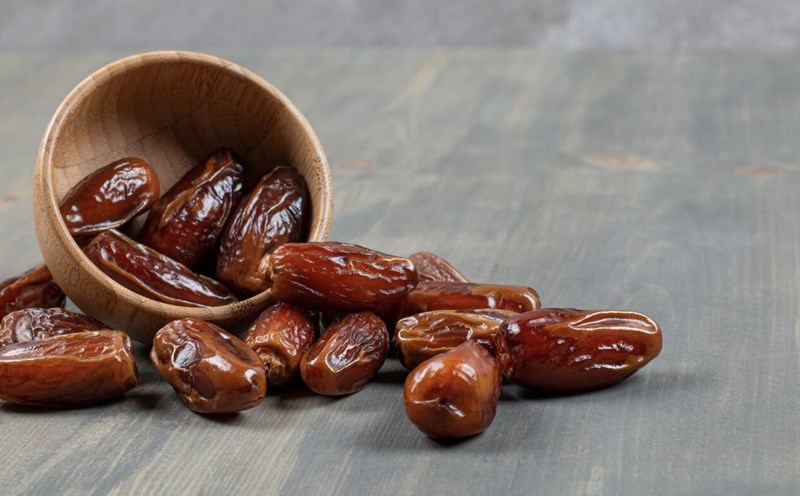Fresh tea: low in calories, high in water, retains antioxidants
Fresh and dried dates are both valuable sources of nutrients, but the content is clearly different. Natalie Allen, RD, clinical associate professor of nutrition at Missouri State University (USA) commented: "Fresh tea contains more water, helps reduce calories and less sugar, and creates a feeling of fullness quickly."
Joan Salge Blake, RDN, a nutrition professor at Boston University (USA), said: Fresh dates are about 60% water, while dried dates are only 25%. The high water content helps keep you feeling full longer and limits overeating."
Fresh tea also retains many vitamins B, C, A, K and has higher antioxidant activity, thanks to the minimal preservation process. With 142 kcal, 1.81 g protein, 0.15 g fat, 37 g carbohydrates and 3.5 g fiber per 100 g, fresh dates are an ideal choice for those who want to control their weight or eat healthy.
Dried tea: rich in fiber, minerals and convenient all year round
The drying process concentrates nutrients, making dried dates contain more sugar, calories, protein, calcium and potassium than fresh dates. "Dried dates provide twice as much fiber as fresh dates and are a quick, convenient source of energy year-round," explains Natalie Allen. However, dried dates can also supplement sugar depending on the brand, and lose some vitamins and antioxidants compared to fresh fruit.
In terms of texture, dates are dry and firm, while dates are fresh, soft and moist. The dates are fresh and rich in caramel, while the dates are dry and sweet like hard candy. Choosing between fresh and dried dates depends on the purpose of use, energy requirement and satiety. Whether fresh or dried, both are a nutritious snack, rich in fiber and minerals, suitable to add to your daily diet.











